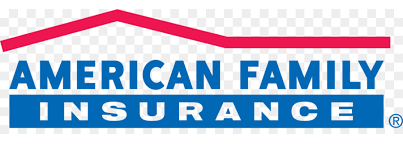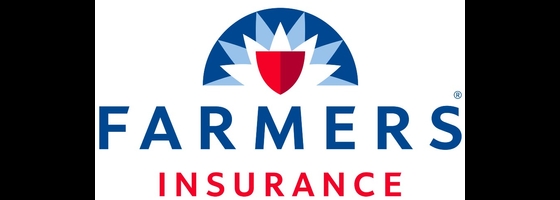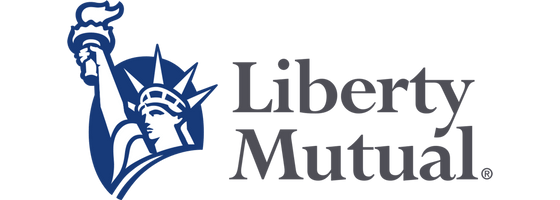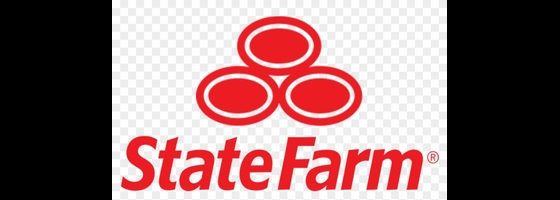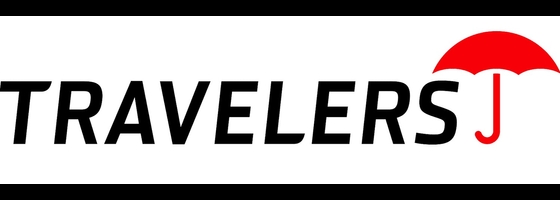- Wide selection of optional coverages, including business property, water backup, and scheduled personal property.
- Fewer than average customer complaints, per NAIC.
Best Homeowners Insurance Companies for February 2025

Our evaluations and opinions are not influenced by our advertising relationships, but we may earn a commission from our partners’ links. This content is created by TIME Stamped, under TIME’s direction and produced in accordance with TIME’s editorial guidelines and overseen by TIME’s editorial staff. Learn more about it.
Many companies sell homeowners insurance in the US. However, the 10 largest home insurance companies account for over half the overall market share. So if you’re looking for coverage, chances are you’ll get a quote and consider buying coverage from one of those leaders.
Our review includes seven of those 10 insurers. Compare their costs, third-party rankings, and more.
Allstate is one of the country’s best-known insurance brands and the second-largest homeowners insurance provider nationwide. The company’s results in J.D. Power’s most recent studies of the homeowners' insurance industry are slightly below the national average. Also, its 2.63 (code 19232) complaint index from the NAIC indicates Allstate generates more customer complaints than other companies, adjusted for size. Allstate has an A+ rating from AM Best.
If you’re a small business owner operating out of your home, you might want to consider Allstate. Its optional business property coverage increases limits for inventory and other business-related items in your residence. (Note: Be sure to discuss your business insurance needs with your agent or insurer.)
To get an Allstate quote, visit one of its local agents or go to the company website. The company encourages filing claims online but does offer a toll-free number for claims questions, 1-800-225-7828.
Based in Madison, Wisconsin, American Family Insurance (AmFam) sells homeowners, auto, business, and several other types of coverage in 19 U.S. states. In J.D. Power’s recent studies of the homeowners' insurance market, the company performed near the national averages. However, its Trustpilot score of 4.7 out of 5.0 stars is higher than that of any of the other companies in this review.
AmFam offers a wide range of optional coverages you can add to a policy for a customized insurance experience. These include relatively common options such as water backup and scheduled personal property, as well as unusual offerings such as hidden water damage, service line coverage, matching siding, and senior living protection. AmFam even offers short-term rental coverage for those who rent out their home for up to 62 days per year.
AmFam offers quotes on its website and through its network of local agents. You can file a claim online or by calling 1-800-692-6326.
Farmers, the country’s fifth-largest home insurer, ranked below the national average in J.D. Power’s most recent studies of the homeowners’ insurance market. However, the company has a respectable 0.78 (code 21628) complaint index from the NAIC.
All of the homeowners insurance companies in our review offer multiple discounts: You owe it to yourself to talk to a company representative or your agent to see if there are ways you can save.
Farmers, however, stands out for its sheer variety of discounts offered. You can save money by bundling your home and car insurance, having a home security system, being a non-smoker, opting for a paperless policy, having a green-certified home, and more.
You can get a policy quote from a Farmers agent—the company offers an agent finder on its website. Or, if you prefer, you can get a quote online. The company also offers an online option for claim filing and a toll-free number for its claims department, 1-800-435-7764.
Liberty Mutual has been around for well over a century. Founded in 1912, the Boston-based insurer now sells a wide range of personal and business insurance in 29 countries. The company ranks on the lower end of J.D. Power’s recent studies of the U.S. homeowners’ insurance industry.
In spite of its age, Liberty Mutual has evolved to meet the needs of 21st-century consumers. The company offers online policy quotes for homeowners insurance (along with an online purchase discount) and a network of sales agents. The Liberty Mutual app lets you manage your policy, make a payment, or file and track a claim. You can also reach the company’s claims service at 1-833-218-0219.
State Farm is one of the country’s most recognized insurance brands. It’s also the largest provider of both home and auto insurance. The Illinois-based insurer has an A++ rating from AM Best, while its rates are among the lowest in our review.
State Farm offers homeowners quotes at its website or through its network of agents. To file a claim, you can visit the website, contact your agent, or call 1-800-732-5246.
With size comes many opportunities to interact with customers. State Farm has a middle-of-the-road Trustpilot rating (although it’s higher than many of the other companies in our review). However, it performed quite well in J.D. Power’s 2023 studies of the homeowners’ insurance market. State Farm also has a very low complaint index from NAIC.
Travelers is the sixth-largest home insurer in the U.S. The company’s results in the most recent studies of the homeowners’ industry by J.D. Power were below the national average. However, Travelers has a very low NAIC complaint index, and its Trustpilot rating is higher than most of the other companies in our review. The company has an A++ rating from AM Best.
Travelers is a company to consider if you’re particularly conscious of your environmental footprint. It offers a “green homes” policy endorsement that covers the cost of environmentally friendly building materials if you need to repair or rebuild your home after a covered loss.
Additionally, if your home is certified green according to the Leadership Energy and Environmental Design (LEED) rating system, you can save up to 5% on your premium with a green home discount. And, while auto insurance is outside the scope of this review, you might be interested to know that Travelers also offers a discount for drivers of hybrid and electric cars.
You can get a quote at the Travelers website or by phone at 1-866-505-3134. Alternatively, you can contact a local independent agent who sells Travelers—the company website includes an agent finder. You can also file a claim at the website or by calling 1-800-252-4633.
USAA was founded in 1922 by a small group of U.S. Army officers who pooled together to insure their personal vehicles. Over the last century, the company has grown to become a financial services giant. Today, USAA offers insurance, banking, and investment products to its members. It’s the fourth-largest home insurer in the country.
In fact, membership is one of the USAA brand's calling cards. The company exclusively provides its services to U.S. military active servicemen, servicewomen, veterans, and their families. The company’s commitment to customer service is often cited as an example across industries.
Due to its exclusivity, J.D. Power does not include USAA in its industry rankings. But it does rate the company, and USAA’s ratings are often much higher than those earned by the rest of the industry.
USAA does not have local agents, but members can get a homeowner quote online at the USAA website. Claim reporting is also available on the website. The website does not appear to provide a phone number for quotes or claims but does provide a general number of 1-800-531-8722.
| Company | Annual fees | Am rating | J.D. Power | NAIC Complaint Index |
|---|---|---|---|---|
Allstate Home Insurance | $1,594 | 809 (12th) | 2.63 (code 19232) | |
American Family Home Insurance | $2,261 | 813 (8th) | 0.81 (code 19275) | |
Farmers Home Insurance | $1,455 | 800 (17th) | 0.78 (code 21628) | |
Liberty Mutual Home Insurance | $1,414 | 789 (20th) | 1.66 (code 23043) | |
State Farm Homeowners Insurance | $1,356 | 829 (5th) | 1.96 (code 25143) | |
Travelers Homeowner Insurance | $1,444 | 790 (19th) | 0.30 (code 25658) | |
USAA Homeowner Insurance | $1,231 | 881 (NA) | 2.04 (code 25968) |
We reviewed each company's website for detailed information about coverages, discounts, and service options.
Pricing information is from a recent review of homeowners insurance costs by The Zebra. Note that these are sample rates. Your cost of homeowners insurance may vary from what is shown.
We also gathered information produced by third-party sources related to the homeowners' insurance industry.
Homeowners insurance protects the investment you’ve made in your home. A standard policy consists of five coverages.
Each of these coverages has a limit, which is the maximum amount the insurer will pay to repair or replace your home or property. Coverages typically have deductibles, which is the amount of money you pay toward your repair or replacement costs if you have a claim.
This is a very brief overview of homeowners insurance. Check your policy to understand better what it does and doesn’t cover. If you have any questions, contact your agent or insurer.
The first step to filing a homeowners claim is to decide whether or not you even should file. This often comes down to your deductible. If the cost to repair or replace the item is equal to or less than your deductible, then a claim makes no sense whatsoever. You might even consider not filing if the value of the damage is only a little bit more than your deductible, as the claim will likely cause your policy premium to increase at the next renewal.
However, if you’re facing a significant financial loss and decide to file a claim, check your policy paperwork or the insurer’s website to see how to proceed. Many insurers offer tools that allow you to file a claim online, and many also offer a toll-free phone number.
However you choose to file your claim, be sure to follow any and all instructions you receive regarding repair estimates, documentation, and deadlines. Staying on top of your claim “to-do list” helps avoid any delays in its processing.
Homeowners insurance is not only a complex product, but it protects a significant piece of your financial picture—the investment you’ve made in your home. When shopping for coverage, consider the following tips.
One of the most important things you can do when buying homeowners insurance is to ensure your coverage limits are based on the cost to rebuild your home, not its market value. The fact is that these two numbers can vary dramatically (it may be much more expensive to rebuild). Having adequate coverage in place means you’ll have less to pay out of pocket should you ever need to file a claim.
Many companies offer additional, optional coverages that you can add to a standard policy. A common option, for example, is scheduled personal property. This provides extra coverage for valuables such as jewelry, artwork, antiques, or expensive electronics.
Be aware also that most standard homeowners policies do not include coverage for earthquakes or flooding. Fortunately, these coverages are often readily available, but you may need to purchase a separate policy. If you live in an area prone to these events, contact your insurer or agent to discuss your options.
Prices vary between insurers. In our review of the seven largest home insurance companies, the cheapest policy costs more than $1,000 less per year than the most expensive. So you owe it to yourself to shop around to make sure you’re getting the best combination of coverage and price.
It can be challenging to differentiate between insurance companies. However, expert reviews such as J.D. Power and consumer reviews such as those on Trustpilot can help you better understand which companies tend to stand out from the pack.
With all that’s riding on your homeowners' insurance, you may want to consider talking to an agent. Insurance agents should understand the needs of homeowners in your area and be well-versed in the “ins and outs” of the companies they represent. A good agent can be your ally in navigating the complex world of insurance for your home, car, business, and life.
Bundling your home and auto insurance means you get both policies from the same company. It’s a common practice, and it provides you with two main benefits.
First, you’ll likely save money. Insurance companies like it when customers bundle (they’d rather sell you two policies than just one), so they tend to offer generous discounts that might apply to the auto policy, the homeowners' policy, or both. All the insurers in our review offer a bundling discount.
Second, you’ll simplify your life a bit. Rather than having to keep track of two insurance companies, two sets of policy paperwork, and two sets of payments, you can streamline things by bundling.
If you have a mortgage, you’ll need homeowners insurance—there’s typically no way around that fact. Your lender will require coverage as long as it has a financial interest in your property.
Homeowners insurance is optional once you’ve paid off your home. Nevertheless, considering all that’s at stake financially, you’ll likely want to maintain coverage. According to the Insurance Information Institute, 88 percent of homeowners do carry insurance.
If you’re concerned about the rising cost of coverage, first check with your current insurer to see if you’re eligible for any additional discounts that may help you save. If that doesn’t bring down your costs, check with three or four other companies to see if they offer lower rates. As noted already, the cost of coverage can vary significantly between companies. You might also want to see if your state offers any programs to help homeowners afford coverage.
Another option is self-insurance. In this method, you drop your home policy and set aside money for repairs for which you’d otherwise file an insurance claim. Self-insurance is a rising trend in states such as Florida, where insurance rates for high-risk properties have spiked dramatically in recent years.
Note that we do not recommend self-insurance. But we want to point out that it is an alternative to traditional homeowners coverage.
While there are many homeowners insurance companies, a majority of Americans rely on just a handful of them for coverage. So if you’re in the market for a policy, you owe it to yourself to check with at least three or four of them to make sure you’re getting the coverage you need at a price that works for your budget.
The 80% rule states that you should insure your home for at least 80% of its total replacement cost to avoid being underinsured.
On a national scale, State Farm is the most commonly purchased homeowners policy. The company has an 18.4% market share, making it the largest home insurer in the US.
According to a recent study by Moneygeek, a policy with $250,000 of coverage costs $1,854 in New York.
The information presented here is created by TIME Stamped and overseen by TIME editorial staff. To learn more, see our About Us page.

